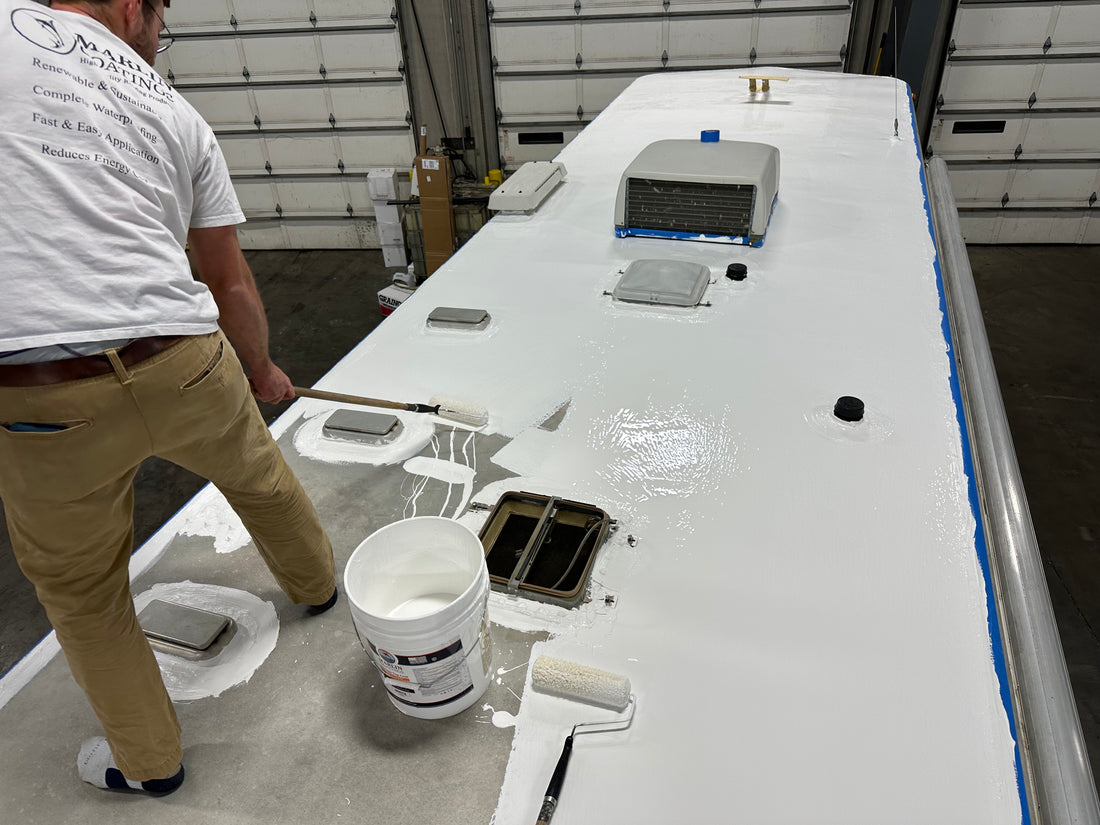Debunking 3 Common Myths About Silicone Roof Coatings for RVs
The Importance of Accurate Information in the Roofing Industry
Online platforms and social media have become popular for individuals to connect, discuss topics, and share experiences. However, it's crucial to verify the information shared on these platforms, especially when it comes to expert advice.
In this blog post, we aim to dispel some common myths about silicone roof coatings that may be circulating. As a silicone roof coating company with decades of field experience, millions of square feet of installation under warranty, thousands of hours of lab developments, and independent testing data on our products, we aim to provide you with the most accurate and up-to-date information available. You can trust that the information we share in this post is based on facts and our extensive experience in the RV silicone roof coating industry.
Myth #1: “Nothing Sticks to Silicone, Not Even Silicone”
The Truth About Silicone Adhesion
Fact: Contrary to popular belief, silicone products can adhere to previously applied silicone without any issues. At our silicone roof coating company, we have tested our silicone roof coating products extensively, and we can guarantee that they will perform as expected. While we cannot speak for other manufacturers, we would be happy to provide any skeptic with a free adhesion test kit to prove the effectiveness of our products. We are committed to ensuring that our customers have complete confidence in the products they rely on to keep their RVs dry.
Myth #2: “You Have to Recoat Every Couple of Years.”
Longevity and Durability of Silicone Roof Coatings
Fact: Our independent lab results show “No Degradation” after 5,000 hours of QUV Testing. For those unaware of the specifics of ASTM Testing, “QUV tests materials by exposing them to alternating cycles of ultraviolet (UV) light and moisture at controlled, elevated temperatures. The QUV simulates the effects of sunlight with fluorescent UV lamps, and it simulates dew and rain using condensing humidity and/or water spray.” While this testing may make it seem like silicone coatings may last forever, that isn’t necessarily true either. Foot traffic, extreme weather conditions, and harsh chemicals can cause the coatings to be worn over time.
It’s important to note that while your silicone roof coatings will likely outlast the RV that it’s applied to, it’s important to perform routine inspections so that you can address any signs of damage or wear before they become major issues.
Myth #3: “Silicone Won’t Stick to RV Roofs.”
Silicone Roof Coatings and RV Roofing Materials Compatibility
Fact: Our silicone products are designed to adhere to a variety of roofing materials, including those found on RVs. Typical RV roofs are either EPDM (rubber roof), TPO, Fiberglass, or Aluminum. All these substrates are well suited for Silicone Roof Coatings. In addition to these substrates, Silicone also adheres well to PVC, KEE, Hypalon, Asphalt Built Up Roofing, Granulated Cap Sheet, Spray Foam, Concrete, Existing Coatings, Dens Deck, and Metal. For more information please check out our “how-to” video here.
Trust the Facts and Make Informed Decisions
We hope that this blog post has provided you with valuable information to help you make informed decisions about your RV roof coatings. By debunking these common myths, we hope to give you the confidence to trust in the durability and effectiveness of silicone roof coatings. If you still have questions, or are planning a future project, please reach out to us for tips and advice! You can reach us here or give us a call at (812) 725-3542. Thank you for reading, and we hope that you will continue to follow our blog for more helpful tips and insights on all things related to roof coatings!

